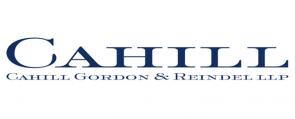
1. How Do I Shift My Resume’s Focus to Litigation From Public Interest?
Answer:
Shifting your resume’s focus from public interest to litigation requires a careful adjustment of how you present your experience. Many attorneys who start their careers in public interest law develop a strong sense of advocacy but may find it challenging to reposition their resumes for a litigation-focused role. The key to success lies in emphasizing litigation-specific skills and experience while minimizing aspects of your work that do not directly relate to litigation.
- For foundational support, this “step-by-step legal resume writing guidance” is especially useful for both seasoned attorneys and law students.
Begin by reformatting your resume to highlight tasks relevant to litigation, such as drafting motions, conducting depositions, engaging in trial work, or managing litigation strategy. Reduce the emphasis on public interest work, unless that experience involved substantial litigation efforts. For instance, if you litigated public interest cases, those can still be valuable, but the framing should shift towards your litigation achievements rather than the public interest cause.
- If you're uncertain where to begin, this “complete guide to attorney resume formats and essentials” breaks down everything from required sections to style considerations.
Expanded Example:
An attorney working at a legal aid organization initially focused on housing rights advocacy, spending most of their time on direct client services and community outreach. However, this attorney also managed several cases involving eviction defense, which required significant litigation skills. By refocusing the resume to highlight these cases—such as motions to dismiss, settlement negotiations, and trial preparation—the attorney was able to present themselves as a litigation-focused candidate, even though the underlying issues were related to public interest work. Their resume transformation enabled them to secure interviews at large firms with strong litigation departments.See Related Articles:
- Top 6 Things Attorneys and Law Students Need to Remove from Their Resumes ASAP
- How Attorneys and Law Students Should Write a Legal Resume
- How to Explain the Employment Gap in Your Resume
Answer:
A lengthy resume can obscure your most important qualifications, especially if it contains extraneous details or lacks focus. To create an effective, concise resume, it’s essential to prioritize your most relevant accomplishments and remove less critical information that doesn’t contribute directly to your candidacy for the specific position.For attorneys with many years of experience or a broad range of practice areas, it can be tempting to include everything on a resume. However, doing so can overwhelm hiring managers and make it difficult for them to identify the key elements of your background. Instead, focus on accomplishments that demonstrate your ability to handle complex, high-level legal work. If you have more than 10 years of experience, it’s often best to limit older roles to a brief summary or even remove them entirely if they are no longer relevant.
- When it comes to leveling up your resume, these “29 essential rules for a more marketable legal resume” offer a practical checklist you can immediately apply.
Expanded Example:
An attorney with 15 years of experience had a resume that spanned four pages, covering work in various practice areas, from family law to corporate litigation. By condensing the resume to focus solely on the last 10 years, which included significant corporate litigation wins and leadership in large-scale mergers and acquisitions, the resume was reduced to a manageable two pages. Unnecessary details, such as early-career family law work, were removed, and bullet points were added to emphasize major legal victories and transactional work. This streamlined approach made the attorney’s experience far more impactful, directly aligned with the roles they were seeking.- Depending on your experience level, this “guidance on where education should appear on your resume” can help determine whether to lead with school or experience.
3. Should I Include Multiple Practice Areas on My Resume?
Answer:
While some attorneys have experience in multiple practice areas, it’s generally more effective to tailor your resume to highlight the practice area most relevant to the job you’re applying for. Firms want to hire specialists, especially in highly competitive legal markets. Presenting yourself as a generalist can make it harder for hiring managers to see how you’ll fit into their firm’s specific needs.- Make sure your document is polished—these “practical tips for attorney resume clarity and polish” reinforce how proofreading and consistency elevate your resume.
If you do have multiple practice areas, and those areas are related or complementary, you can present them together, but you should still prioritize the one most aligned with the role. For example, if you are applying for a corporate litigation role but also have real estate law experience, you should emphasize your litigation background while noting your real estate work in a secondary capacity.
Expanded Example:
An attorney applying for a position at a firm specializing in securities litigation had a resume that included experience in family law, criminal defense, and corporate litigation. Initially, the broad range of practice areas diluted the impact of their corporate litigation work. By restructuring the resume to focus exclusively on their securities litigation experience, the attorney was able to present themselves as a specialist in that field. Their family law and criminal defense experience were briefly mentioned but did not take up valuable space, allowing the attorney’s corporate litigation expertise to shine. If you’re looking for more structured guidance beyond these common resume challenges, the Attorney Resume Guide walks through best practices for organizing your experience and presenting your strengths.
4. How Should I Present a Gap in My Legal Career?
Answer:
Career gaps are common and can occur for a variety of reasons, such as taking time off to raise a family, pursue additional education, or handle personal matters. It’s important to address gaps head-on by showcasing how you remained engaged with the legal profession or developed relevant skills during that time.Even if you didn’t work in a traditional legal role during your gap, you can include any activities that demonstrate continued professional development, such as taking legal courses, doing volunteer work, or contributing to legal publications. Employers are more understanding of gaps today than they were in the past, especially when the gap is explained thoughtfully and constructively.
- Understanding “how focus and specialization can make your resume stand out” is key—law firms prefer candidates who clearly demonstrate depth in specific practice areas.
Expanded Example:
One attorney took a three-year break from practicing law to care for a family member. During that time, they completed several CLE courses, volunteered at a legal aid clinic, and wrote articles for legal journals. When updating their resume, they created a new section under the gap period labeled “Professional Development,” where they highlighted the courses they took and their legal writing contributions. This not only filled the gap but also demonstrated that the attorney remained active and engaged in the legal field, which reassured prospective employers.
5. How Do I Make My Resume More Concise for Corporate Law Positions?
Answer:
For corporate law positions, resumes should be highly focused on transactional work, including mergers and acquisitions, contract negotiations, corporate governance, and advisory roles for business clients. Corporate law firms are looking for candidates who can demonstrate a track record of handling sophisticated business transactions, so it’s important to tailor your resume to emphasize these experiences. If your résumé feels stale or unfocused, incorporating updated legal resume keywords can help bring it in line with today’s hiring criteria.To keep the resume concise, focus on your most significant corporate law accomplishments and remove extraneous details that don’t directly contribute to your qualifications for the role.
- Watch for “common legal resume mistakes and effective fixes,” so you can avoid sabotaging your job search with simple errors.
Expanded Example:
An attorney seeking a corporate law role had a resume that included detailed descriptions of various legal work, including litigation and regulatory compliance. By narrowing the focus to their corporate law experience, particularly highlighting deals they worked on—such as mergers involving multi-million dollar companies and complex contract negotiations—the resume became much more targeted. Unrelated details were condensed or removed entirely, resulting in a polished, corporate-focused resume that effectively showcased the attorney’s expertise.
For deeper insight into making your resume resonate with employers, read Why Focus Matters: Tailoring Your Legal Resume to Stand Out.
6. What Should I Do If My Resume Is Split Between Legal and Non-Legal Experience?
Answer:
If your resume includes both legal and non-legal experience, it’s important to prioritize your legal experience while briefly mentioning non-legal roles if they provided transferable skills. Non-legal experience can be valuable, especially if it involved skills like leadership, project management, or client relations that are relevant to the legal field.However, legal employers are primarily interested in your legal work, so this should always take center stage on your resume. If your non-legal experience was in a senior leadership role or in a sector closely related to the law, it can add value, but be sure to tie it back to the legal skills you’ve developed.
Expanded Example:
An attorney who transitioned from a business development role in the tech industry into law initially had both their legal and non-legal experience equally emphasized on their resume. After restructuring, the legal roles were brought to the forefront, with a brief mention of the business development role at the end. However, they highlighted transferable skills from that role, such as negotiation and contract drafting, which directly applied to their legal career, making the resume more cohesive and targeted.- To sharpen your document even further, review these “top-10 resume missteps to avoid” and ensure you’re not making avoidable errors.
See Related Articles:
- How to Write a Resume that May Actually Get You a Job
- Where Should Education Go on a Lawyer's Resume?
- Why Focus Matters: Tailoring Your Legal Resume to Stand Out
Answer:
For niche practices such as blockchain law, it’s critical to ensure that your resume showcases your expertise in that specific field. Law firms looking for attorneys with niche skills want to see evidence that you are not only knowledgeable but actively involved in that area. This can include mentioning relevant certifications, industry-specific conferences attended, articles or white papers written, and specific cases or projects you’ve worked on in the niche area.Tailor your resume to highlight your work in the niche field, even if it’s a relatively new area of expertise. Demonstrating thought leadership or involvement in cutting-edge legal issues can make you stand out as a top candidate.
- For maximum impact, use this “comprehensive guide to resume keywords and practice-area targeting” to match your resume with both ATS and human reviewers.
Expanded Example:
An attorney applying for a blockchain law role had extensive experience in general corporate law but only a small section dedicated to blockchain work. By revising the resume to highlight their contributions to blockchain regulatory projects and legal publications on blockchain technology, the attorney was able to position themselves as a blockchain specialist. They also included relevant certifications and speaking engagements at blockchain industry events, which enhanced their credibility as an expert in the field. Many of these questions are addressed live in our Resume Review Workshop where attorneys submit resumes for real-time review.- For additional insights into common resume challenges, explore Top 10 Common Legal Resume Mistakes That Keep You from Getting Hired.
For more on presenting a concentrated, career-driven resume, see Why Focus Matters: Tailoring Your Legal Resume to Stand Out.
Conclusion
An effective legal resume should reflect not only your experience but also your ability to present yourself as a candidate uniquely suited for the job. Whether you’re shifting focus, condensing information, or emphasizing niche expertise, a well-crafted resume can make all the difference. By addressing common resume challenges and implementing strategies such as targeted focus, concise formatting, and highlighting transferable skills, attorneys can significantly increase their chances of securing positions at top law firms. You can further refine these strengths using the advice in How to Perfect Your Legal Resume: 20 Essential Tips for Attorneys and Law Students.
- You’ll be surprised—“why most attorney resumes fail and how to fix yours” reveals that over 85 % of resumes hinder, not help, candidates—and how you can break from that trend.
1. What are the most important resume tips for an attorney job search?
Answer: The key to a successful attorney job search is a resume that clearly highlights relevant legal experience, practice area expertise, and measurable achievements. Focus on accomplishments rather than duties, use concise language, and tailor your resume for each firm or role. For more guidance and sample resumes, explore BCG Attorney Search’s resources for attorneys at every career stage.2. How can I tailor my legal resume for law firm hiring success?
Answer: Law firm hiring favors resumes that emphasize specialization and relevant accomplishments. Highlight the practice areas most aligned with the firm’s needs, quantify successes when possible, and ensure clarity and professionalism. BCG Attorney Search offers detailed advice on optimizing resumes to increase interview opportunities.3. Should attorneys include multiple practice areas on their resumes during a lateral move?
Answer: Including multiple practice areas is acceptable if they are complementary, but prioritize the area most relevant to the new role. Firms prefer specialists, so position secondary experience briefly while emphasizing your primary expertise. BCG Attorney Search can help attorneys navigate lateral moves with strategic resume advice.4. Can a condensed resume improve my chances in a competitive legal job market?
Answer: Yes, a concise, focused resume makes your key qualifications stand out and prevents hiring managers from feeling overwhelmed. Limit older or less relevant roles, and highlight achievements that demonstrate complex legal capabilities. For step-by-step tips on condensing your resume effectively, BCG Attorney Search provides expert guidance.5. Why is emphasizing litigation or transactional skills critical for career growth on a legal resume?
Answer: Law firms look for candidates whose resumes clearly showcase high-value skills, like litigation or transactional experience, that match their business needs. Framing your accomplishments around these skills demonstrates readiness for impactful work and potential for career advancement. Explore BCG Attorney Search to learn how to position your expertise for maximum opportunity.About Harrison Barnes
No legal recruiter in the United States has placed more attorneys at top law firms across every practice area than Harrison Barnes. His unmatched expertise, industry connections, and proven placement strategies have made him the most influential legal career advisor for attorneys seeking success in Big Law, elite boutiques, mid-sized firms, small firms, firms in the largest and smallest markets, and in over 350 separate practice areas.
A Reach Unlike Any Other Legal Recruiter
Most legal recruiters focus only on placing attorneys in large markets or specific practice areas, but Harrison places attorneys at all levels, in all practice areas, and in all locations-from the most prestigious firms in New York, Los Angeles, and Washington, D.C., to small and mid-sized firms in rural markets. Every week, he successfully places attorneys not only in high-demand practice areas like corporate and litigation but also in niche and less commonly recruited areas such as:
- Immigration Law
- Workers Compensation
- Insurance
- Family Law
- Trust and Estate
- Municipal law
- And many more...
This breadth of placements is unheard of in the legal recruiting industry and is a testament to his extraordinary ability to connect attorneys with the right firms, regardless of market size or practice area.
Proven Success at All Levels
With over 25 years of experience, Harrison has successfully placed attorneys at over 1,000 law firms, including:
- Top Am Law 100 firms such including Sullivan and Cromwell, and almost every AmLaw 100 and AmLaw 200 law firm.
- Elite boutique firms with specialized practices
- Mid-sized firms looking to expand their practice areas
- Growing firms in small and rural markets
He has also placed hundreds of law firm partners and has worked on firm and practice area mergers, helping law firms strategically grow their teams.
Unmatched Commitment to Attorney Success - The Story of BCG Attorney Search
Harrison Barnes is not just the most effective legal recruiter in the country, he is also the founder of BCG Attorney Search, a recruiting powerhouse that has helped thousands of attorneys transform their careers. His vision for BCG goes beyond just job placement; it is built on a mission to provide attorneys with opportunities they would never have access to otherwise. Unlike traditional recruiting firms, BCG Attorney Search operates as a career partner, not just a placement service. The firm's unparalleled resources, including a team of over 150 employees, enable it to offer customized job searches, direct outreach to firms, and market intelligence that no other legal recruiting service provides. Attorneys working with Harrison and BCG gain access to hidden opportunities, real-time insights on firm hiring trends, and guidance from a team that truly understands the legal market. You can read more about how BCG Attorney Search revolutionizes legal recruiting here: The Story of BCG Attorney Search and What We Do for You.
The Most Trusted Career Advisor for Attorneys
Harrison's legal career insights are the most widely followed in the profession.
- His articles on BCG Search alone are read by over 150,000 attorneys per month, making his guidance the most sought-after in the legal field. Read his latest insights here.
- He has conducted hundreds of hours of career development webinars, available here: Harrison Barnes Webinar Replays.
- His placement success is unmatched-see examples here: Harrison Barnes' Attorney Placements.
- He has created numerous comprehensive career development courses, including BigLaw Breakthrough, designed to help attorneys land positions at elite law firms.
Submit Your Resume to Work with Harrison Barnes
If you are serious about advancing your legal career and want access to the most sought-after law firm opportunities, Harrison Barnes is the most powerful recruiter to have on your side.
Submit your resume today to start working with him: Submit Resume Here
With an unmatched track record of success, a vast team of over 150 dedicated employees, and a reach into every market and practice area, Harrison Barnes is the recruiter who makes career transformations happen and has the talent and resources behind him to make this happen.
A Relentless Commitment to Attorney Success
Unlike most recruiters who work with only a narrow subset of attorneys, Harrison Barnes works with lawyers at all stages of their careers, from junior associates to senior partners, in every practice area imaginable. His placements are not limited to only those with "elite" credentials-he has helped thousands of attorneys, including those who thought it was impossible to move firms, find their next great opportunity.
Harrison's work is backed by a team of over 150 professionals who work around the clock to uncover hidden job opportunities at law firms across the country. His team:
- Finds and creates job openings that aren't publicly listed, giving attorneys access to exclusive opportunities.
- Works closely with candidates to ensure their resumes and applications stand out.
- Provides ongoing guidance and career coaching to help attorneys navigate interviews, negotiations, and transitions successfully.
This level of dedicated support is unmatched in the legal recruiting industry.
A Legal Recruiter Who Changes Lives
Harrison believes that every attorney-no matter their background, law school, or previous experience-has the potential to find success in the right law firm environment. Many attorneys come to him feeling stuck in their careers, underpaid, or unsure of their next steps. Through his unique ability to identify the right opportunities, he helps attorneys transform their careers in ways they never thought possible.
He has worked with:
- Attorneys making below-market salaries who went on to double or triple their earnings at new firms.
- Senior attorneys who believed they were "too experienced" to make a move and found better roles with firms eager for their expertise.
- Attorneys in small or remote markets who assumed they had no options-only to be placed at strong firms they never knew existed.
- Partners looking for a better platform or more autonomy who successfully transitioned to firms where they could grow their practice.
For attorneys who think their options are limited, Harrison Barnes has proven time and time again that opportunities exist-often in places they never expected.
Submit Your Resume Today - Start Your Career Transformation
If you want to explore new career opportunities, Harrison Barnes and BCG Attorney Search are your best resources. Whether you are looking for a BigLaw position, a boutique firm, or a move to a better work environment, Harrison's expertise will help you take control of your future.
Submit Your Resume Here to get started with Harrison Barnes today.
Harrison's reach, experience, and proven results make him the best legal recruiter in the industry. Don't settle for an average recruiter-work with the one who has changed the careers of thousands of attorneys and can do the same for you.
About BCG Attorney Search
BCG Attorney Search matches attorneys and law firms with unparalleled expertise and drive, while achieving results. Known globally for its success in locating and placing attorneys in law firms of all sizes, BCG Attorney Search has placed thousands of attorneys in law firms in thousands of different law firms around the country. Unlike other legal placement firms, BCG Attorney Search brings massive resources of over 150 employees to its placement efforts locating positions and opportunities its competitors simply cannot. Every legal recruiter at BCG Attorney Search is a former successful attorney who attended a top law school, worked in top law firms and brought massive drive and commitment to their work. BCG Attorney Search legal recruiters take your legal career seriously and understand attorneys. For more information, please visit www.BCGSearch.com.
Harrison Barnes does a weekly free webinar with live Q&A for attorneys and law students each Wednesday at 10:00 am PST. You can attend anonymously and ask questions about your career, this article, or any other legal career-related topics. You can sign up for the weekly webinar here: Register on Zoom
Harrison also does a weekly free webinar with live Q&A for law firms, companies, and others who hire attorneys each Wednesday at 10:00 am PST. You can sign up for the weekly webinar here: Register on Zoom
You can browse a list of past webinars here: Webinar Replays
You can also listen to Harrison Barnes Podcasts here: Attorney Career Advice Podcasts
You can also read Harrison Barnes' articles and books here: Harrison's Perspectives
Harrison Barnes is the legal profession's mentor and may be the only person in your legal career who will tell you why you are not reaching your full potential and what you really need to do to grow as an attorney--regardless of how much it hurts. If you prefer truth to stagnation, growth to comfort, and actionable ideas instead of fluffy concepts, you and Harrison will get along just fine. If, however, you want to stay where you are, talk about your past successes, and feel comfortable, Harrison is not for you.
Truly great mentors are like parents, doctors, therapists, spiritual figures, and others because in order to help you they need to expose you to pain and expose your weaknesses. But suppose you act on the advice and pain created by a mentor. In that case, you will become better: a better attorney, better employees, a better boss, know where you are going, and appreciate where you have been--you will hopefully also become a happier and better person. As you learn from Harrison, he hopes he will become your mentor.
To read more career and life advice articles visit Harrison's personal blog.






